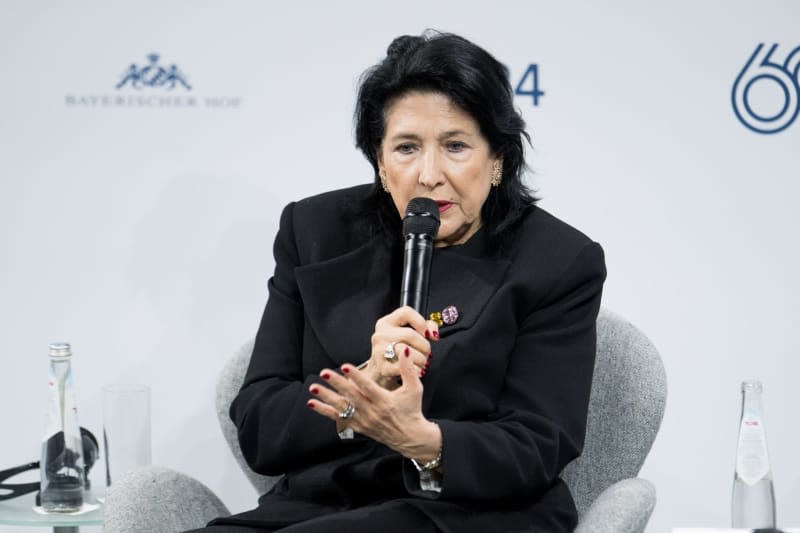Germany and France 'deeply concerned' about situation in Georgia

- Oops!Something went wrong.Please try again later.
Germany and France have expressed their "deep concern" about the situation in Georgia.
In a statement published on Sunday, the two countries said they took note with deep regret of the decision by the Georgian government and ruling party to deviate from the European path.
The background to this is the adoption of a controversial law restricting foreign influence on civil society in Georgia.
Georgia has had the status of an EU candidate country since the end of last year.
The Franco-German declaration states: "Our two countries have always been in favour of Georgia's European path and actively supported the decision of the European Council of December 2023 to grant candidate status."
With regard to the controversial law, it states that the Georgian government and ruling party are acting against common European values and the aspirations of the Georgian people.
"Georgia's European path has been mapped out - but it is Georgia that decides how quickly and in which direction it progresses," the statement said.
Georgian President Salome Zourabichvili vetoed the law passed by parliament. The president, who is considered pro-European, described the law on Saturday as "Russian in its essence and spirit." However, her veto can be overruled by parliament.
The law on restricting foreign influence on civil society in Georgia was passed by parliament in Tbilisi in its third reading at the beginning of last week, despite weeks of massive protests by tens of thousands of people in Tbilisi.
The law is intended to limit foreign influence on non-governmental organizations (NGO). Accountability will be tightened for aid organizations and independent media that receive more than 20% of their funding from abroad.

